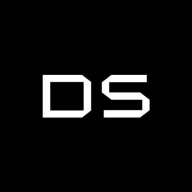

DataStax Enterprise and MongoDB compete in the database solutions category. DataStax Enterprise seems to have an advantage in pricing and customer service, while MongoDB is notable for its feature-rich offerings appealing to those seeking extensive capabilities.
Features: DataStax Enterprise provides advanced data management and integrated analytics for large-scale applications, emphasizes scalability and security, and is designed for enterprises requiring robust solutions. MongoDB is known for its flexible schema design, powerful querying options, and developer-friendly tools that facilitate rapid application development, highlighting its versatility.
Ease of Deployment and Customer Service: DataStax Enterprise is recognized for its straightforward deployment process and responsive customer service, making it attractive for businesses seeking reliable implementation. MongoDB offers a robust deployment model with its Atlas cloud service and comprehensive documentation, although its customer service is not as engaging as DataStax. Both offer strong deployment capabilities, but DataStax excels in customer service engagement.
Pricing and ROI: DataStax Enterprise involves a higher upfront cost but promises significant ROI with scalable, high-performance database management that proves cost-effective over time. MongoDB requires a notable investment but provides competitive ROI through its adaptive architecture and wide functionalities. DataStax offers transparent pricing and long-term savings, while MongoDB's extensive features attract those focusing on advanced capabilities regardless of initial costs.

DataStax Enterprise offers a high-performance, scalable database solution designed for modern data requirements, supporting a wide array of use cases that demand real-time analytics and robust security.
Focusing on delivering powerful distributed databases, DataStax Enterprise integrates the open-source foundation of Apache Cassandra, delivering enhanced features for enterprises. It supports mission-critical applications at scale, providing real-time query capabilities and fault tolerance. Designed with high availability and operational efficiency, it supports complex data models and simplifies management with advanced tools for monitoring and repair.
What are the standout features of DataStax Enterprise?In industries such as finance, telecommunications, and retail, DataStax Enterprise is implemented to handle immense data workloads, often leveraging its capabilities for fraud detection, personalized customer experiences, and real-time decision-making. Its deployment in these sectors highlights its adaptability and performance in demanding environments.
MongoDB is a flexible and scalable NoSQL database solution that efficiently handles both structured and unstructured data. It is known for its ease of use, JSON capabilities, and efficient data handling, making it ideal for developer-friendly environments.
MongoDB stands out with features like sharding, geospatial indexing, and its open-source nature. Users find it fast and appreciate its seamless integration into different applications. Despite being powerful, it remains straightforward to set up and use, bolstered by a clustering and aggregation framework that enhances its functionality. While generally appreciated for its cost-effectiveness and broad application compatibility, there is room for improvement in security, enterprise integration, and the creation of more robust training and documentation resources. Enhancing performance and adding support for traditional relational database concepts could also prove beneficial.
What are MongoDB's most important features?MongoDB finds widespread application across industries like healthcare, logistics, and telecommunications. It efficiently powers IoT platforms, data analytics, and document management systems. Its schema flexibility and JSON storage capabilities make it ideal for real-time processing and multi-server databases, essential for handling large-scale data volumes in modern applications.
We monitor all NoSQL Databases reviews to prevent fraudulent reviews and keep review quality high. We do not post reviews by company employees or direct competitors. We validate each review for authenticity via cross-reference with LinkedIn, and personal follow-up with the reviewer when necessary.